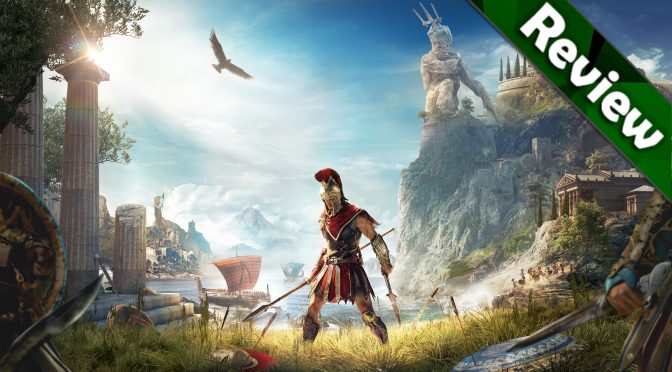Assassin’s Creed found its way to us way back in 2007, inspired by the Prince of Persia series. Since then, it has come a long, long way with the latest iteration bringing about some of the most extensive changes to date. I have been a fan of the series since the first game. Not all of them have been great, some not even good, but there have been many for me that were a fantastic and memorable experience. So much of what makes these games great for me are the setting they’re in, and I love the architecture, history, the myth and lore of Ancient Greece. Throw that in with a massive open world RPG concept and I couldn’t wait to get my hands on it.
Odyssey is a huge step towards the game becoming a fully-fledged RPG, and whether that is for better or for worse is going to depend on the player. I was most excited for this, but what I found is that while it is a large step in the right direction for their first dabbling in these extensive RPG mechanics, they have one foot in the door but never fully enter. Without writing an entire novel, I’ll do my best to touch on all the systems that I feel are important or notable, mostly new things to series, but this is a game of immense scale so it will be impossible to get to everything. I hope you can bear with me as I dig in!
For the first time in the series the player can choose from two protagonists to play, and even though they play exactly the same, it is refreshing to have the choice. After choosing either Alexios or Kassandra, you’re dropped into the big and beautiful world that is Odyssey, where our hero begins their adventure on the island of Kephallonia.
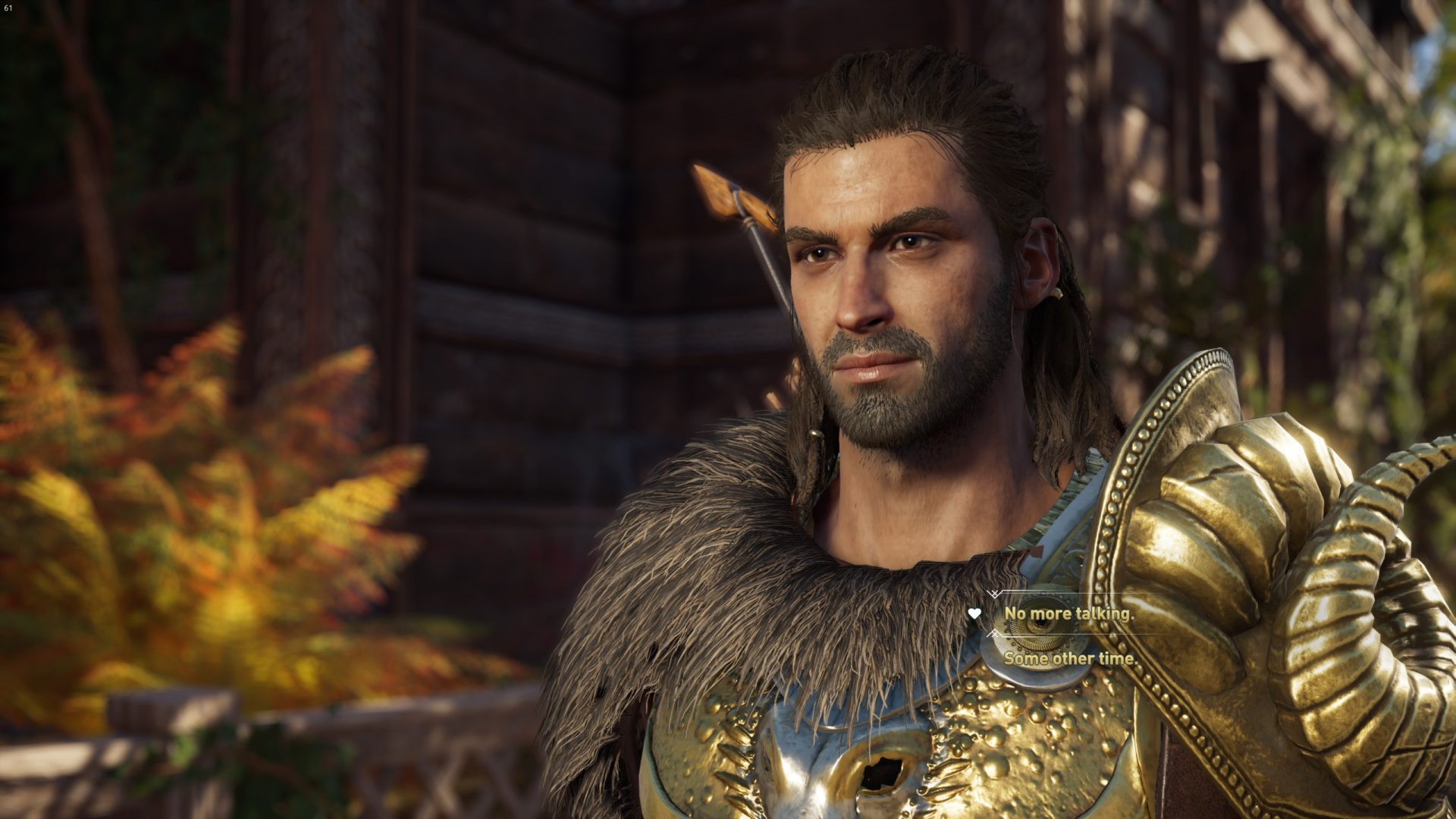
The main quest didn’t quite hook me from the start, but it eventually grabbed my interest about halfway through. It’s not the best story I’ve seen from the series, but it was enough to have fun with. You play as a Spartan long separated from your parents, and after taking a big contract you find yourself attempting to track down your family. That’s basically it with some Assassin’s Creed Universe sprinkled on top.
Our characters role and the timeline are some of the largest departures from normal formula. This time you play as a mercenary for hire, and the events take place nearly 400 years prior to Origins. No, you are not an assassin in Assassin’s Creed, but I didn’t find this to be a big deal. Being a mercenary helps with the implementation of an open dialogue and choice driven narrative, as it allows the kind of freedom that would be the case for a mercenary that is free to do as they please, if the price is right.
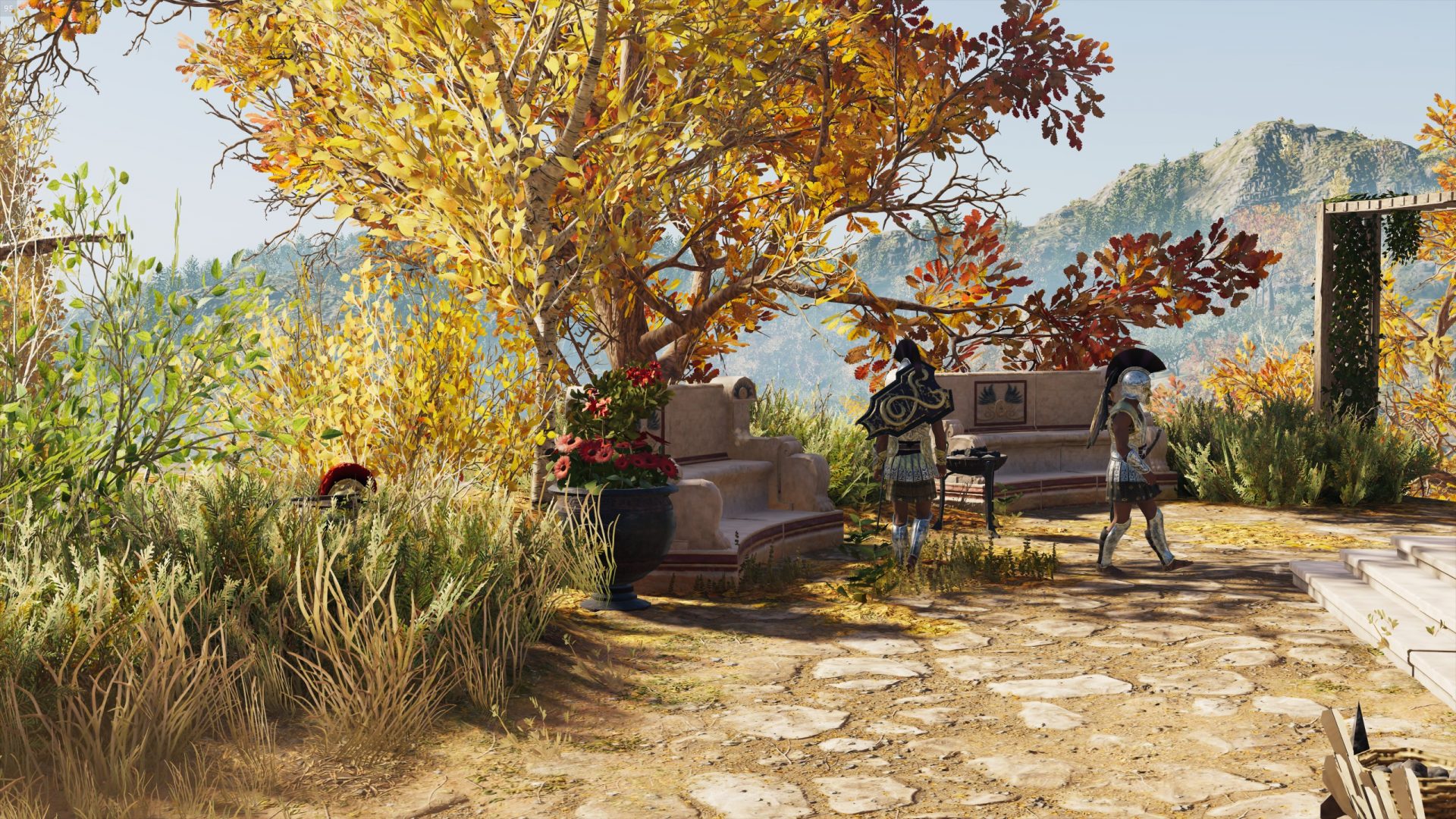
And yes, a choice driven narrative! This was another huge new step for the series as they delved into an open world, freedom of choice RPG. This turned out to be a bit of good and bad, but it being their first attempt at it for the series, it was a welcome addition. Odyssey has a total of nine different endings depending on how you make your choices – Nine!
I was rarely interested in diving further into many of the additional dialogue options and found myself only answering the parts that were necessary to move on with the quest.
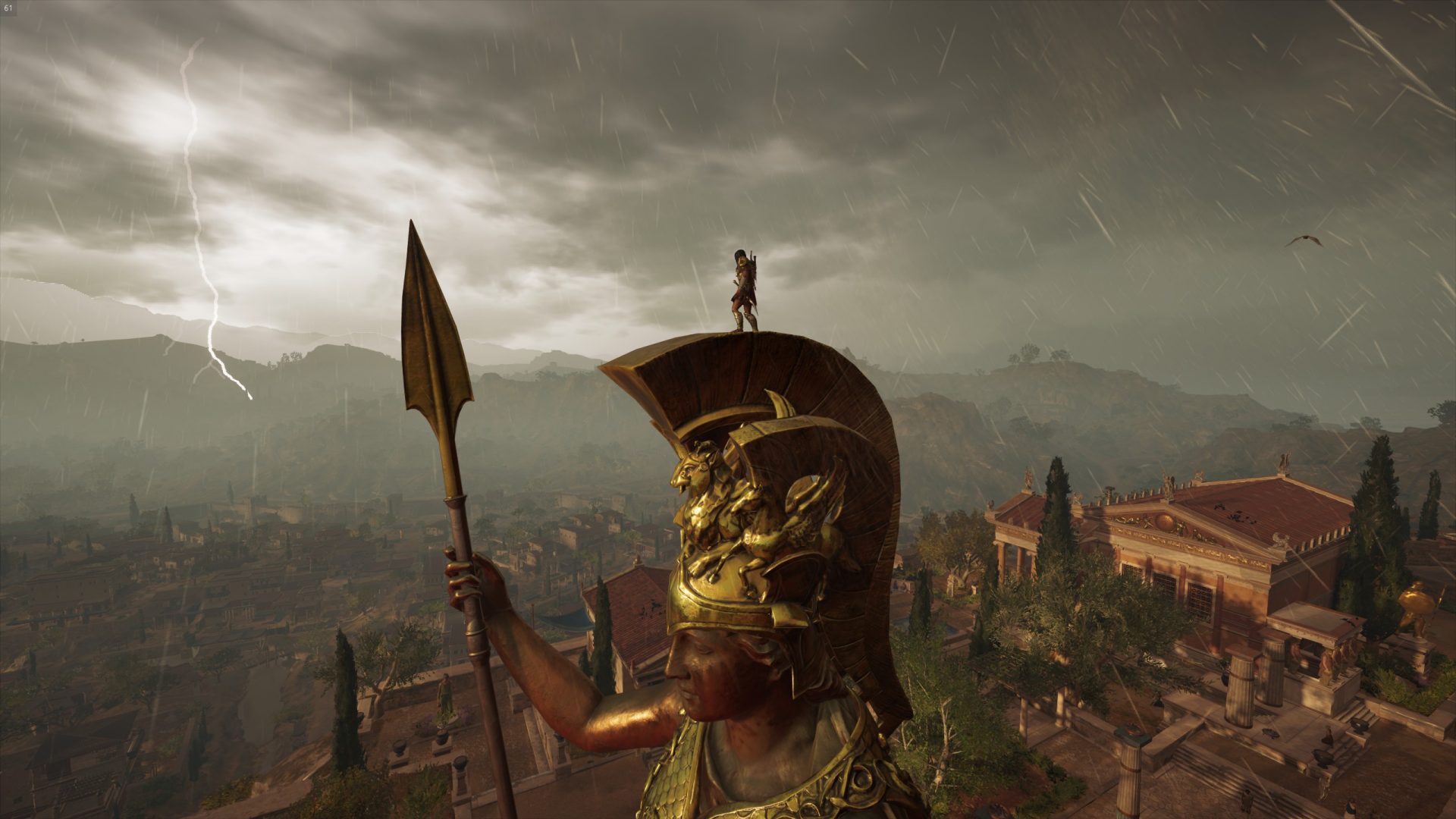
The optional portions of these conversations usually serve to gather more information about a quest, because in the new exploration mode it requires you to track down quest objectives based on information learned instead of a quest marker that takes you directly there. It’s actually pretty cool, but your eagle can spot your target out for you from a great distance, so ultimately it feels a bit useless.
One of the most immediately impressive things to me was the enormous scale of the world. At nearly 10 hours into the game, I had barely even scratched the surface. Hell, I had barely made it off the first island by then. And while a sizable portion of the map may be water, it helps the feeling of enormousness that you must trek across large bodies of water to discover new locations.
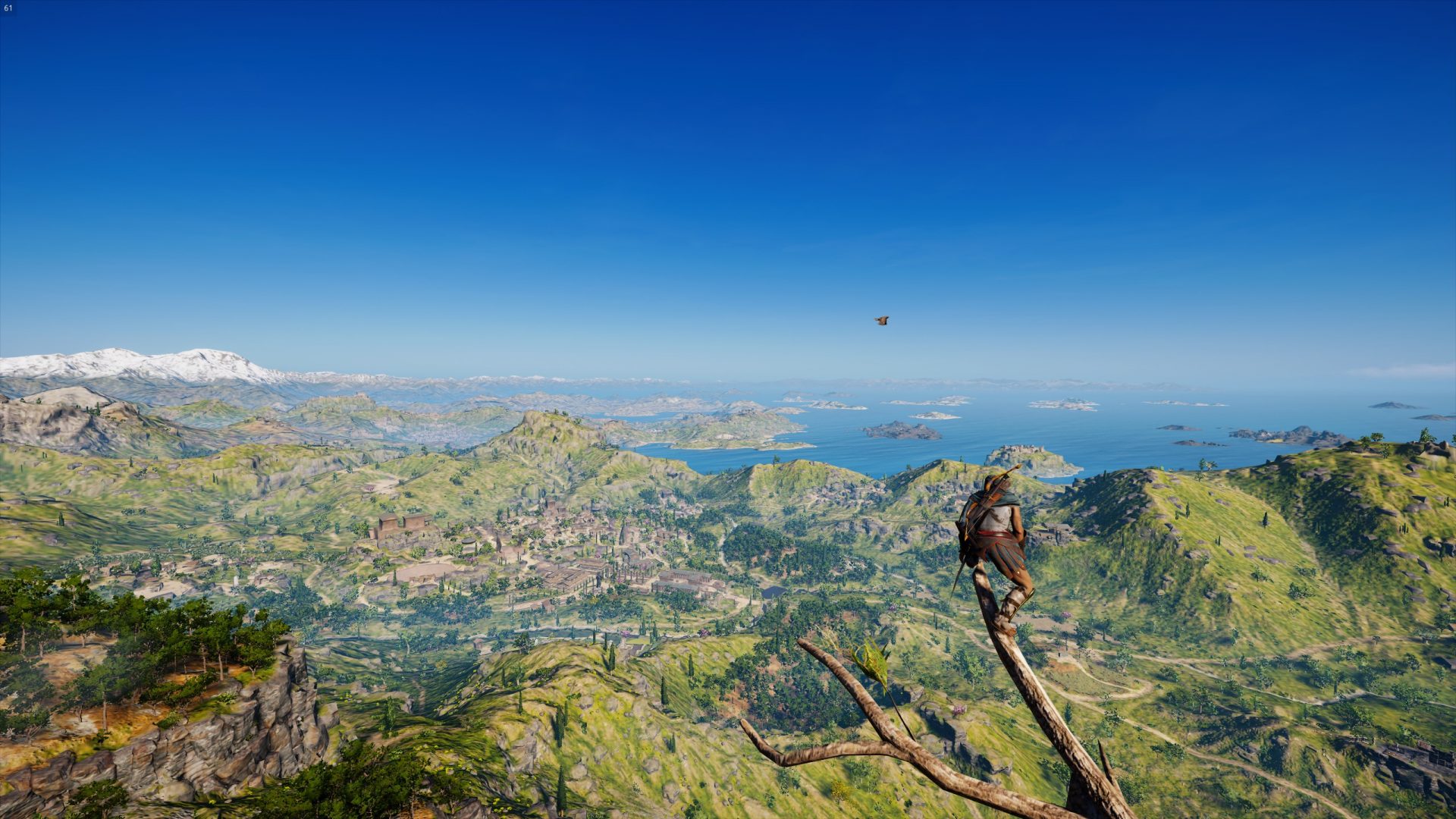
Speaking of which, ships are back! With Black Flag being one of my favorites, I was ecstatic to see the return to an emphasis on ships and naval combat. My excitement fizzled quickly, however, and I found that I didn’t spend much time on my ship other than to get where I needed to go.
Don’t get me wrong, it’s fun! The seas are absolutely gorgeous, it feels solid, the crash of the waves and the shanties are relaxing, but it was missing something. I can’t quite put my finger on it, but I think it was largely because arrow/javelin combat are not the same as heavy, loud and impactful cannons that we know from Black Flag.
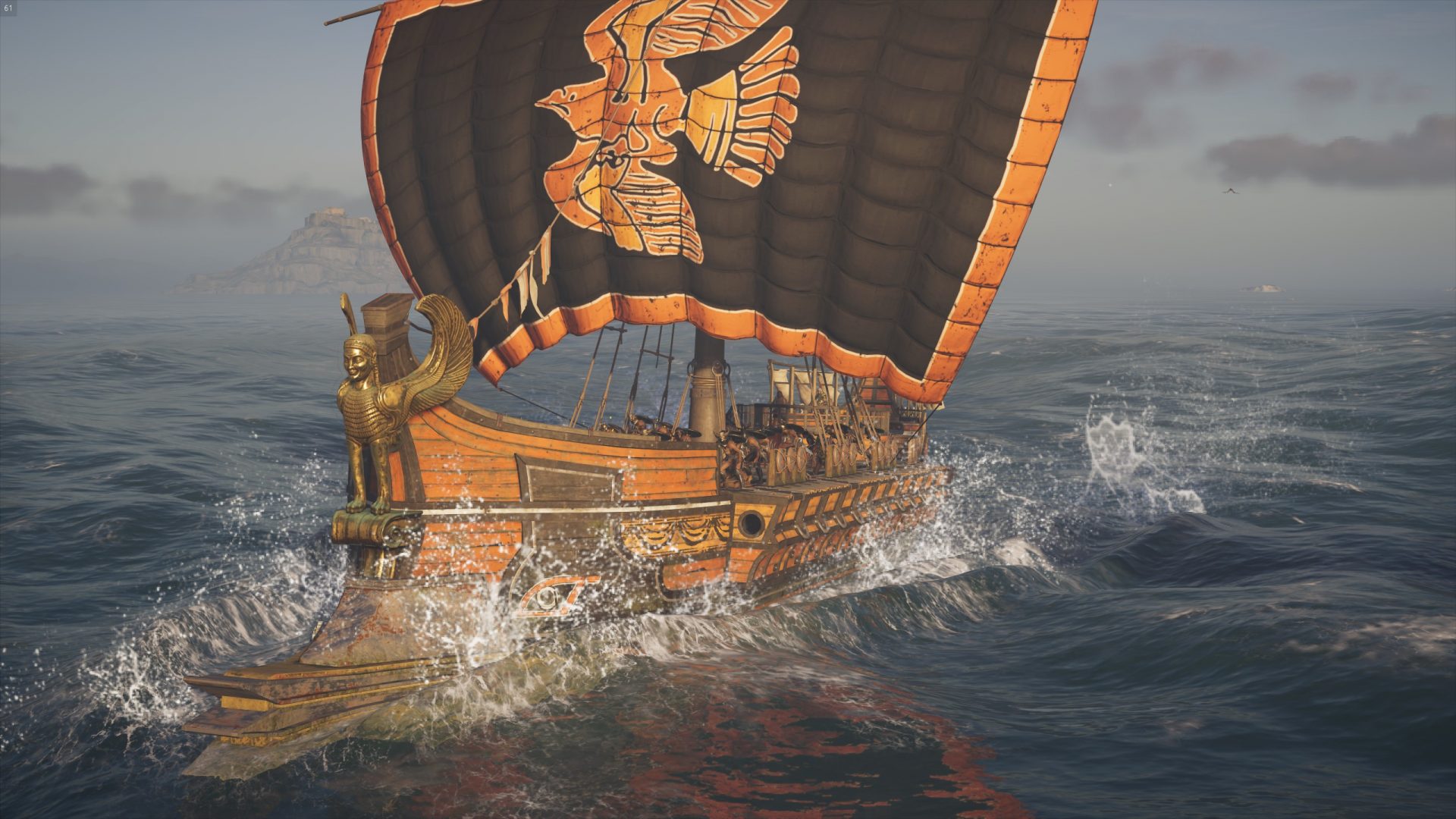
That probably isn’t a fair comparison, I suppose. Because come on, it’s pirates. You can’t really top that. The ship combat in Odyssey turned out to be redundant and in my opinion, too easy. I don’t recall in all my game time that I ever felt challenged at sea.
The ship can be upgraded in a number of categories. Arrow damage, javelin damage, fire damage, crew ability, crew cosmetics and more. But what I found the most interesting here is the use of recruits to give your ship a decent upgrade through buffs.
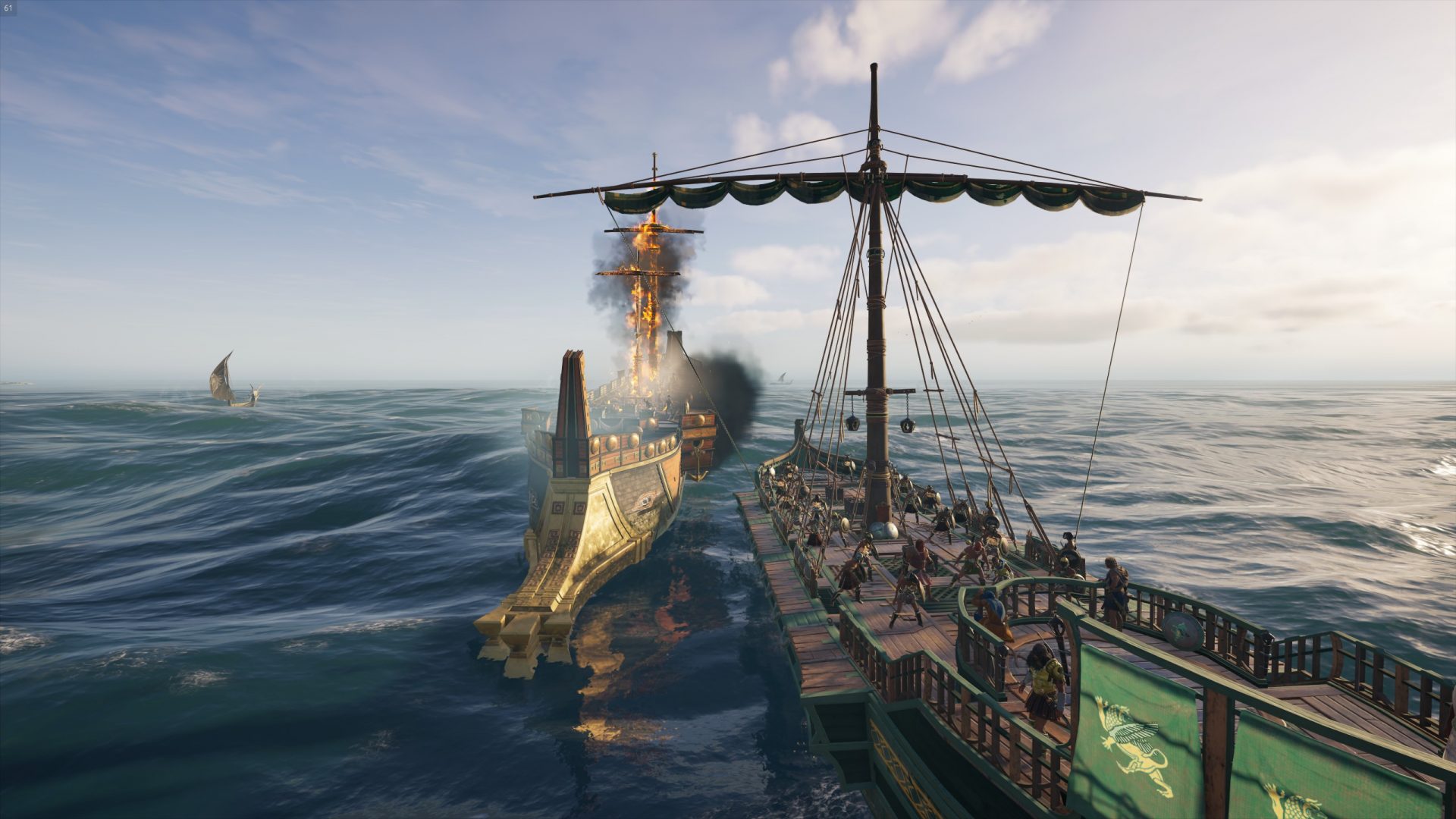
Throughout the game, you can knockout and recruit almost anybody, and they will return to your ship where you can equip them into a slot via the ship menu and the buffs will become active as if they were a piece of gear. That NPC will now be on deck, fighting alongside you as you board enemy ships.
Character upgrades are also deeper in Odyssey than they’ve ever been before. Touching more on some of those new RPG features, there are many new abilities to unlock, and an impressive array of equipment to find. The abilities are broken into the three categories: Hunter, Warrior, and Assassin. Many of the buffs on items can be categorized with those three as well, each tailoring more to a specific damage type than another.
Combat, like a few other aspects of the game, can become very repetitive. There are times where fights are more challenging than others, but I found that is usually not for a new variation in an opponent’s abilities or predictability, but only because some enemies absorb more damage than others. This is with exception to a few here and there.
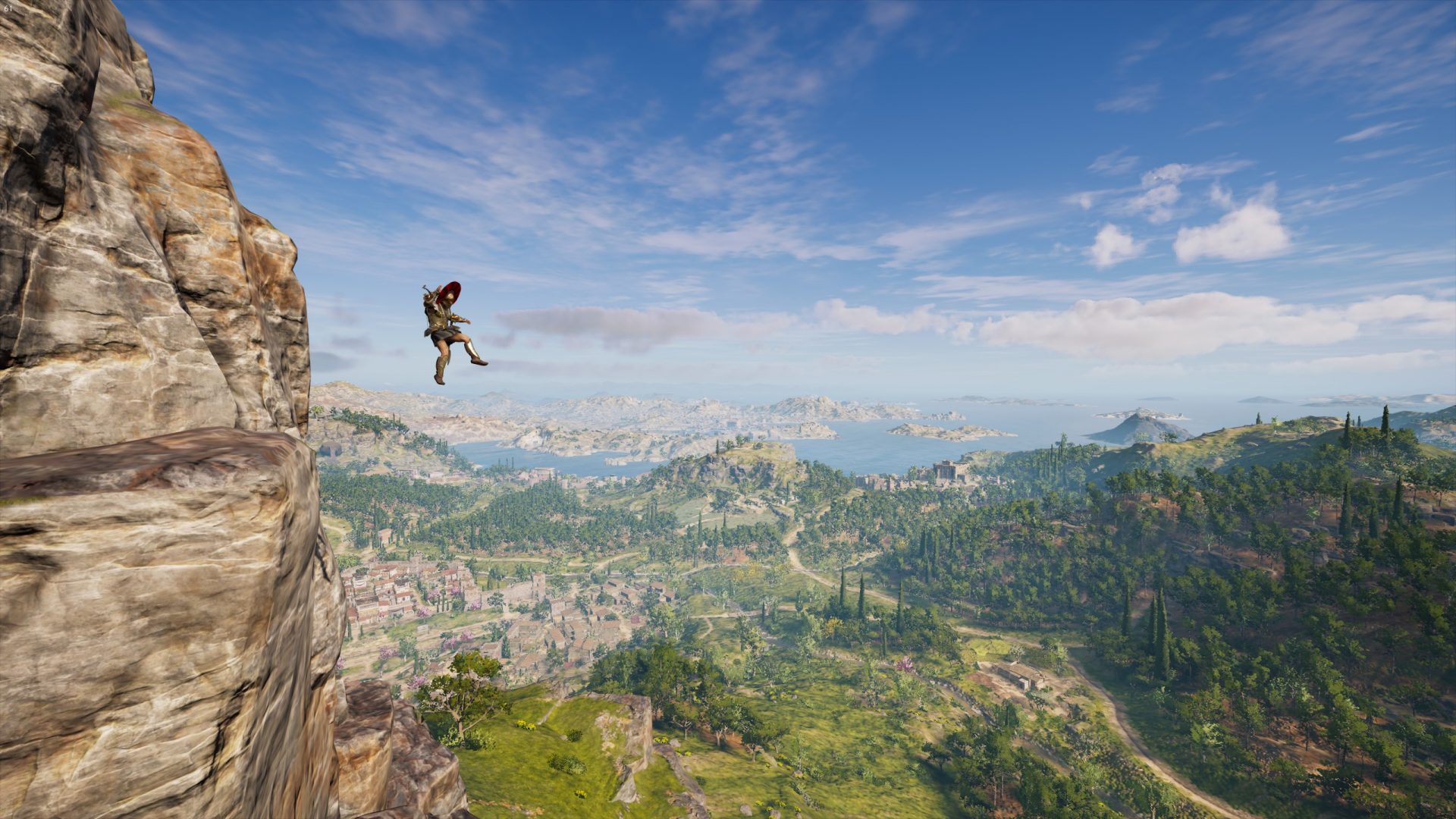
New and powerful abilities make you feel like a force to be reckoned with, and I discovered quickly that one of your best skills is available from the beginning and with no investment: a properly timed dodge.
This made me crazy, it gives the player a ridiculously one-sided edge in a fight because it slows time down substantially, allowing you a moment to reposition, get a flurry of attacks in, or heal. It would have been nice to see a stamina gauge when using that along with a parry and heavy attacks. It’s hard not to exploit it, because it’s only natural that you dodge when being attacked. And it’s not difficult to time it perfectly, either.
The Peloponnesian War across the map has the Spartans and Athenians battling it out for control over territories, and your character will play a vital role in turning the tides of battle in either direction. Every time a controlling power in an area is weakened to a certain point, it enables a conquest battle where your mercenary can choose to fight for one side or the other.
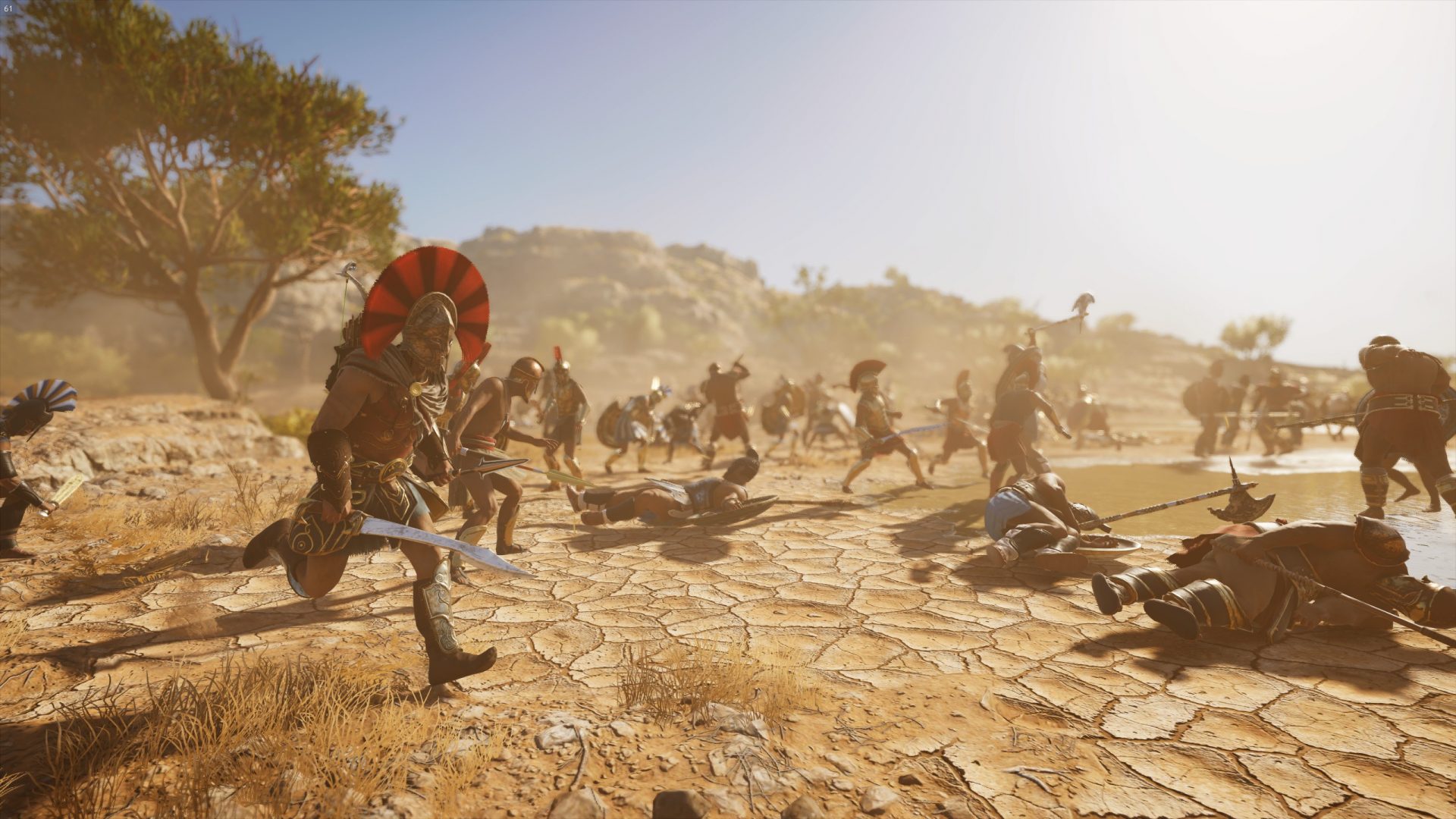
I came running for these. Every time. Yes, they can get repetitive, but they’re always fun and a good way to stack up some XP and new loot. By sneaking around a territory and sabotaging the controlling power in various ways, such as destroying war supplies or even killing that regions leader, you control who holds the area.
Ah but nothing is ever quite perfect, is it? My biggest issue with this system is the lack of impact it really holds. It’s impossible outside the main story to gain notoriety that spills over into any meaningful dialogue. While your mercenary’s reputation spreads far and wide, these controlling powers never hold a grudge against you.
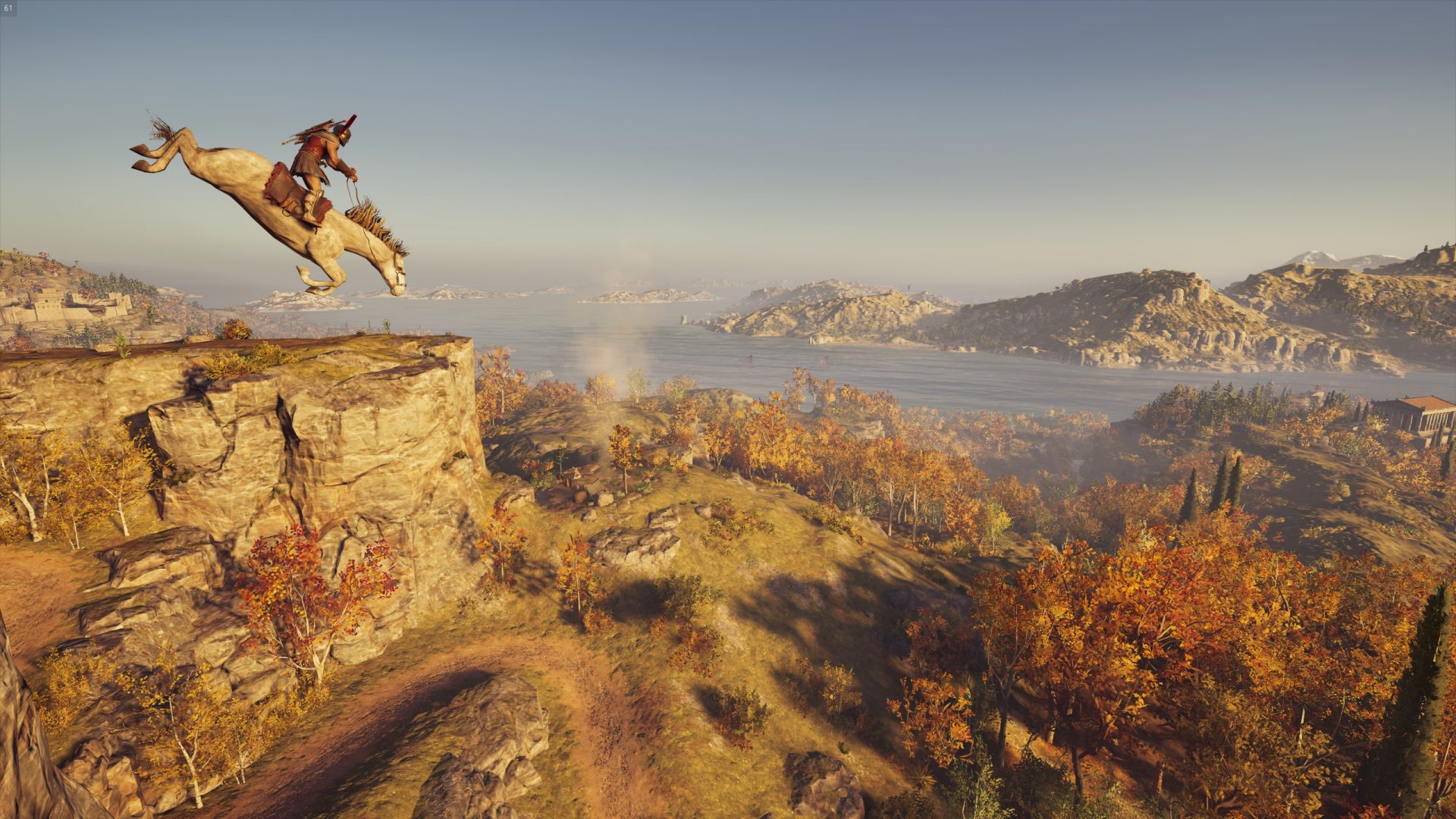
No matter how many times you’ve sabotaged them, slaughtered their soldiers by the hundreds and murdered their leaders in cold blood, they’re just excited that you are fighting for them at that moment. It means nothing if you help one side take a territory, immediately go sabotage it to spark another conquest battle, then fight for that same side again after causing all the trouble in the first place. It makes the whole system feel a bit weightless and lacking purpose outside of being a loot factory (which isn’t so bad).
One of my favorite new things in Odyssey are the other mercenaries. The world is full of them, and I loved picking fights with them whether they were after me or not. When you murder or steal, you can pick up a wanted level. Then the mercenaries start coming, and you can fight them, pay your bounty, or go find and kill the person who is paying for that bounty on your head.
At certain parts of the story you can’t get rid of your wanted level, and this can turn things up a notch when you’re trying to take a fort or complete an objective. I thought it was fun any time a mercenary would come ruin my good time as I rampaged through an encampment, killing anything in my path.
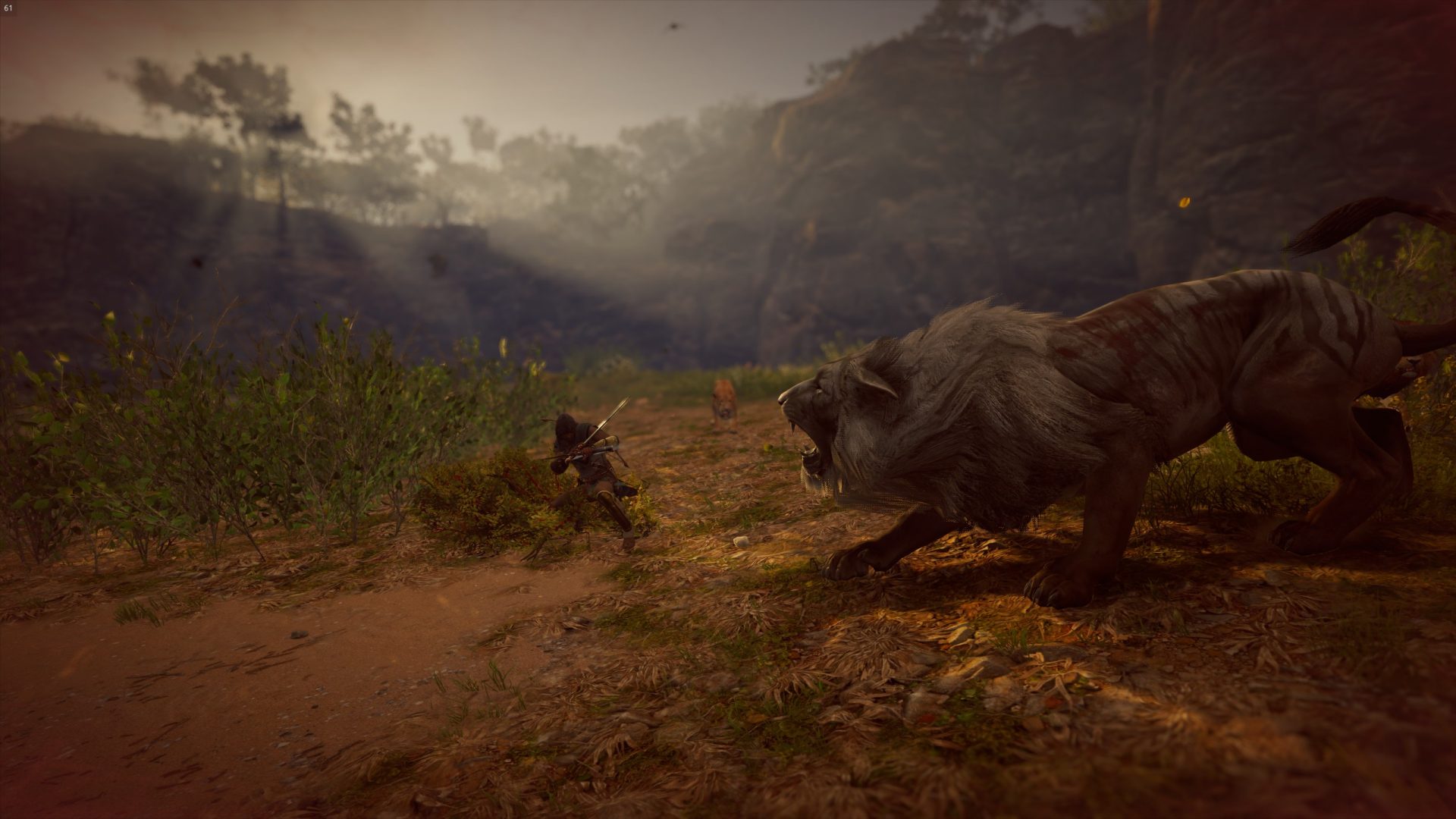
Mercenaries are some of the toughest opponents you can find in the game, and each one of them has different abilities, weapons, damage types, and even animal companions. They help keep it fresh, in my opinion, and bring some variation to the table when you’re trying to get things done. If you find yourself in the path of a mercenary that’s a couple levels ahead of you, you’re really in for a fight!
That brings me to probably one of the more controversial aspects of the game… The micro-transactions. Ubisoft is catching a lot of flak for this, and I think for the first time in the series it’s completely warranted. I’ve never been one to care much about them. I usually look past the fact that they even exist and just play the game with their absence and never think twice about it. But in Odyssey, Ubisoft is starting down a slippery slope.
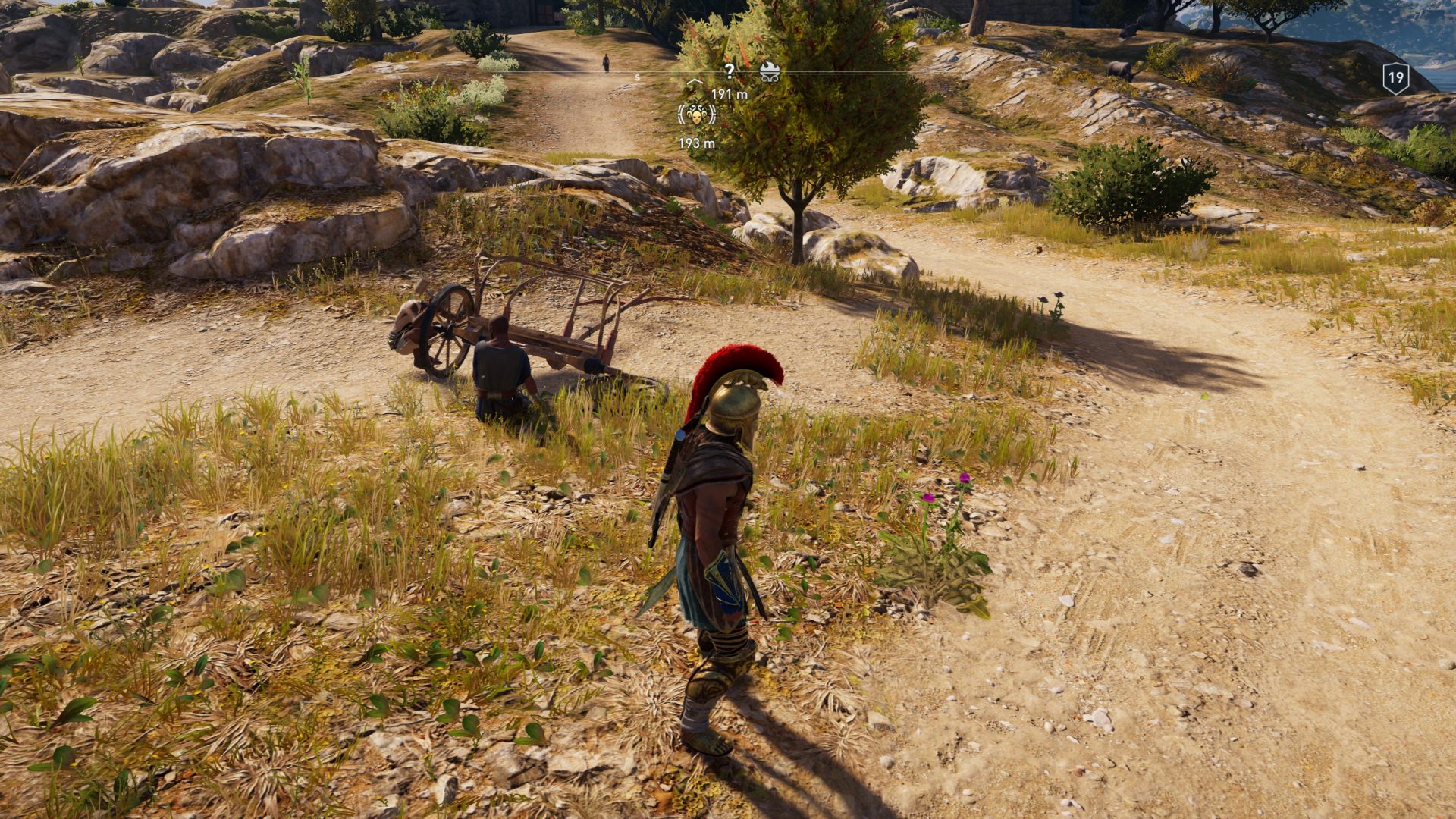
It is true, that there is more grind to this game than in any other we’ve seen. Granted, it wasn’t to such an extent that I felt it ruined the game, but they are edging ever closer to the dangerous territory. I’m the type of player who gets rolling in the main quest and likes to see it through, with exception to some sides and exploration here and there, then catch up on those things later.
Odyssey breaks that up and makes it impossible for no reason I can see other than to entice players into buying. Several times throughout the story you will suddenly come to a halt and are practically forced to go do other things so you can catch up to the level requirement of the quest. At one point I came to a stop at level 26 and I needed to get to level 31 to be on par with the next quest in line.
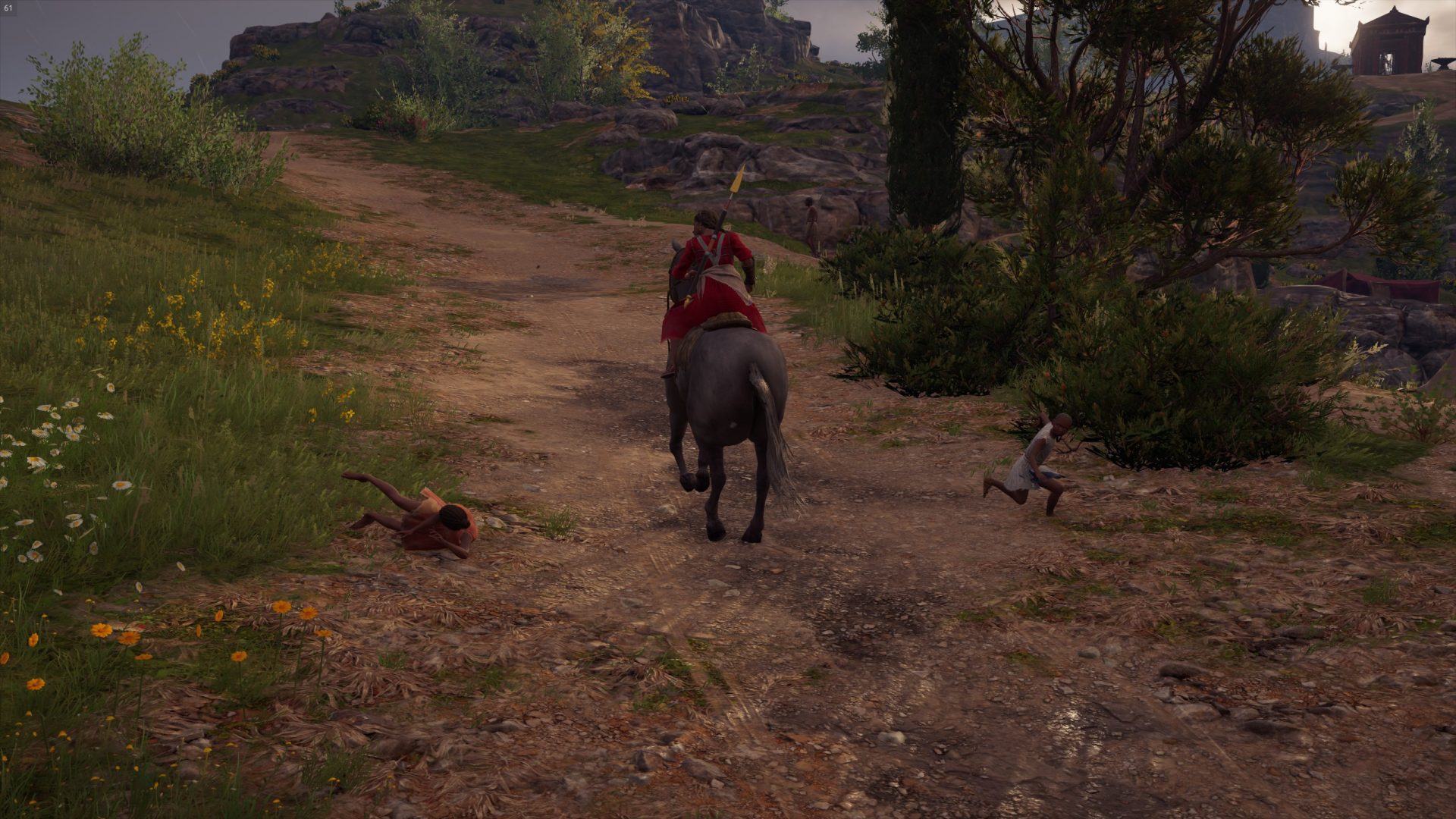
Enter micro-transactions. Boy, do those time-savers look good now, eh? What’s the harm in a little XP boost, right? Shame, Ubisoft. Shame. Furthermore, the gear upgrades are insanely expensive. I went through the entire game without selling a single piece of gear that I found. I dismantled absolutely everything, and in order to keep my gear up to pace with the growing difficulty of enemies, I had to either replace or upgrade it.
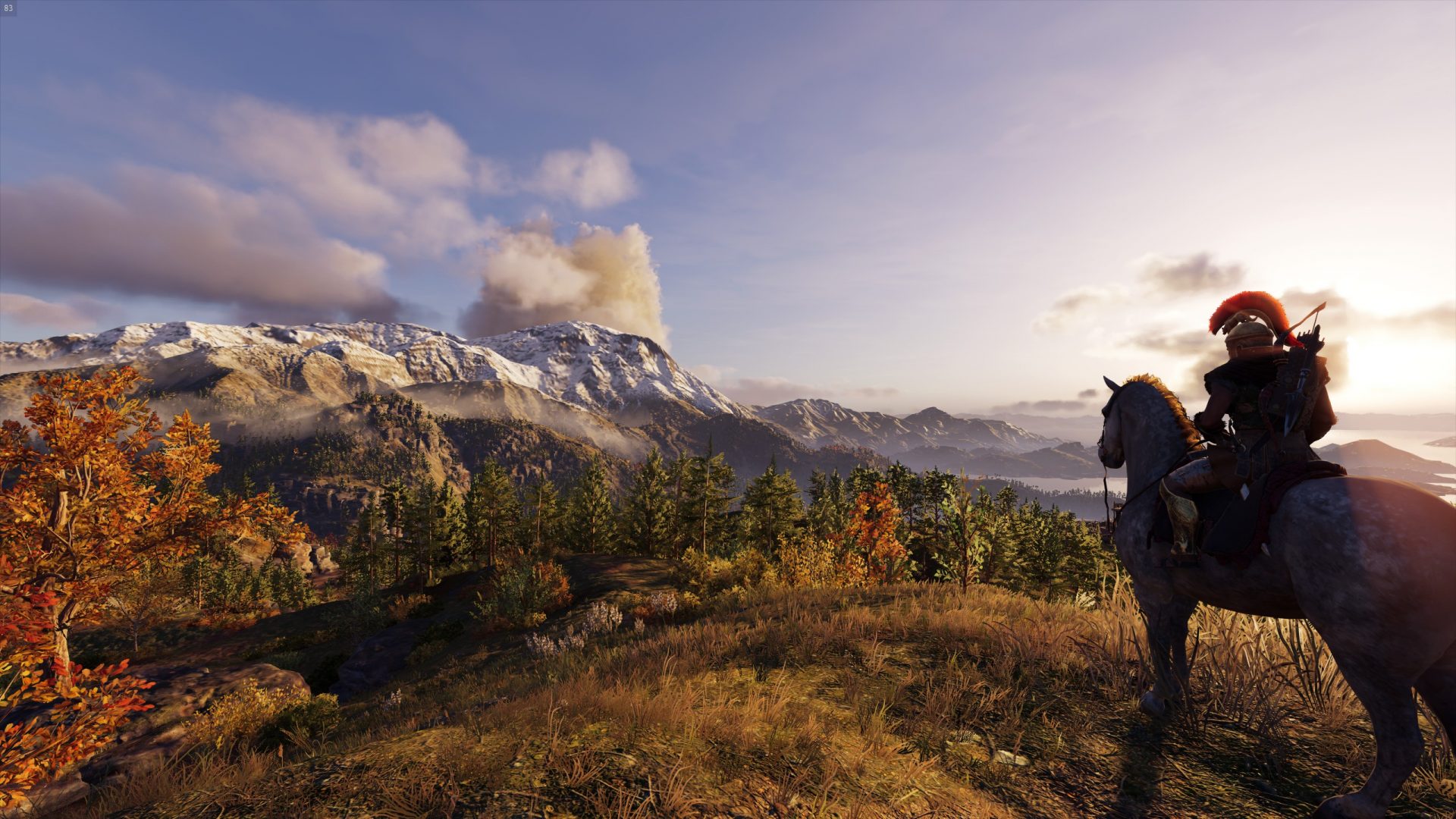
Sure, you can equip the new stuff you’ve found, but I found loot with a good stat roll pretty early on and found that I’d upgrade it every 4-5 levels instead of replacing it. But the problem was even though I dismantled everything I had for materials, I rarely had enough to upgrade more than maybe two pieces of equipment during those intervals. Throw in the cost of ship upgrades on top of that and I could see how people would be looking more closely at those time-saver packs.
I found myself coming through this game with mixed feelings about the experience. That’s not to say it wasn’t good or entertaining, though. There is a lot to talk about, and I can’t possibly get to it all in one article. I’m hopeful that they take what they’ve learned in this new endeavor and enhance it further, taking that final step through the door into full RPG greatness.
I can be critical of things, but I did enjoy the game. So much so, that I fully intend on running through it again with Kassandra to explore some of the other endings, and I still have so much left to do on my current run with Alexios! Assassin’s Creed Odyssey is definitely one to remember, and I would recommend it to anyone who has been watching with a cautious, but curious eye.
![]()
- Massive World
- Huge Variety of Gear
- New Skill Trees
- Loads of Content
![]()
- Intentionally Placed Grind
- Boring Ship Combat
- AI is Still Dumb
- Texture Pop-in
Playtime: 74 hours total
Computer Specs: 64-bit Windows 10 OS, i7-4790, 16GB memory, GTX 1080ti, installed on a Samsung 860 EVO SSD.
Side note: Due to the length of the review, I decided to omit my usual personal performance experience. Sorry about that! But HERE is John’s performance analysis!
Father of two and avid gamer, Kyle made his switch to PC gaming about a decade ago. In that time, he developed his obsession with performance, but has no regrets… Yet. In his spare time he is taking his family out on outdoor adventures, exploring the trails in his Jeep, and trying to catch up on playing his over-bloated Steam library.

